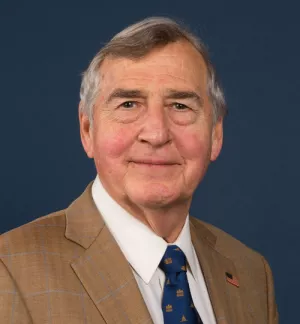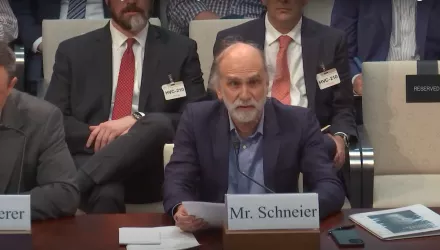SUPPOSE someone wanted to undermine the competence of a business, university or public agency. He could cut the pay of its core professionals, demean the institution, degrade the status and responsibilities of top-level managers, deprive careerists of top jobs by filling them with outsiders more committed to their own personal agenda than to the goals of the enterprise and discourage able new people from joining the organization.
Since the late 1960s, that's exactly how we've treated the federal career civil service. As inflation reduced pay, the past four presidents, Democratic and Republican alike, denigrated the government in Washington. None was more viscerally anti-government than Jimmy Carter. But, as usual, President Reagan said it best: "Government is not the solution to our problems; government is the problem."
Even so, Reagan has been presented with a historic opportunity. By approving the pay increases recently recommended by the bipartisan Commission on Executive, Legislative and Judicial Salaries, Reagan can begin to reverse two decades of erosion in compensation and respect for those entrusted with our hardest public choices.
The recommended 50 percent pay raise for Cabinet and sub-Cabinet members, federal judges and congressmen will just about bring them back to 1969 levels of pay, adjusted for inflation, at a total annual cost of only $ 77 million. But the most important -- if least-discussed -- effect would be to allow the maximum annual salaries paid to senior career officials to rise as well.
Over the past 20 years, these top officials have suffered a cut of more than one third in real income. While congressmen have been able to supplement their salaries with honoraria, career officials, executive-branch appointees and judges have been forced to choose between lower living standards and abandoning their careers. The numbers opting to leave have increased dramatically. The average tenure of high-level government appointees has fallen to 18 months, hardly long enough for someone to learn his job.
President Reagan can stop this erosion. But it will fall to President-elect Bush to overcome two decades of neglect, if not of malign intent.
Successive administrations have shrunk opportunities for career civil servants by placing political appointees above them three and four echelons deep, from Cabinet secretary down to the level of bureau chief. Presidential appointments have quadrupled in the past two decades to 500, and non-career positions in the top grades have doubled to 700.
Recruiting efforts have done more to discourage than attract quality people. The former associate director of the Office of Personnel Management, Terry Culler, has argued the "best and brightest" should not serve in government at all, but be encouraged to migrate to the private sector, our "true vehicle for prosperity." Government should be "content to hire competent people, not the best and most talented people," he said.
The message gets through. Applications for even the most prestigious entry slots for new graduates, the Presidential Management Intern Program, have fallen from 1,000 a decade ago to 500 just this year. Meanwhile, applications for elite White House fellowships, which offer citizens of all ages an opportunity to serve in the executive branch, dropped from 2,000 to 800.
What would a coherent strategy to strengthen the competence of the career service look like? First, President Reagan should approve, and Congress should accept, the pay scales recommended by the Commission on Legislative, Executive and Judicial Salaries.
Second, President-elect Bush and leaders in Congress should restore public pride in jobs that guarantee our nation's security, freedom, rights and honor. No president since John F. Kennedy has effectively sounded the call to public service.
Third, the new administration should limit the number of political appointees, resisting the temptation to reach so deeply into departments, and thereby enhancing the status and responsibility of career civil servants.
Finally, we private citizens must recognize our stake in the competence and performance of our government. The case is as obvious as it is neglected. In an increasingly complex world, the demands for intelligence and craft in designing limited but effective government actions rise steadily.
Democracy, it has been observed, is the form of governance in which citizens get the government they deserve. This administration and the next must take every opportunity to invest in excellence in government. If they -- and we -- fail, government in the 1990s might just give us our due -- the bitter yield of our indifference. Graham Allison is dean of the John F. Kennedy School of Government at Harvard University.
Allison, Graham. “Biting the Hand That Governs; We Demean the Bureaucracy, Then Cry About Uncivil Service.” The Washington Post, January 1, 1989





